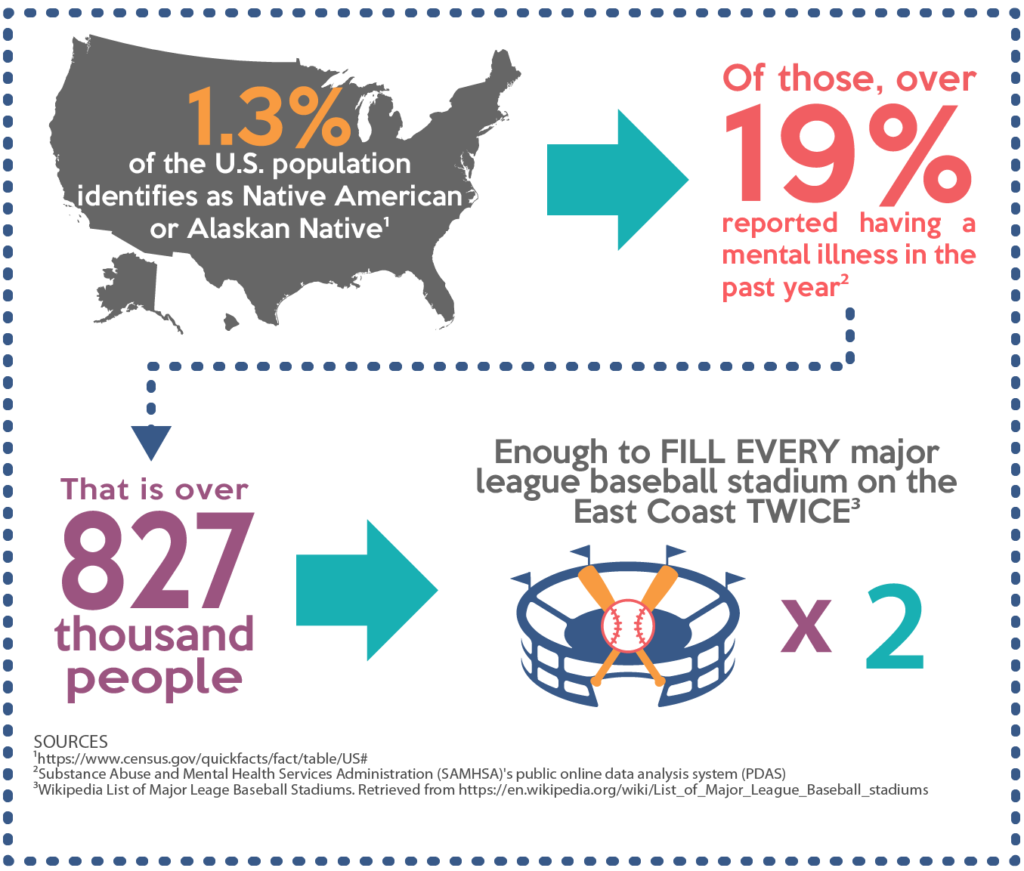November is Native American Heritage Month. This month, we observe and honor the rich history, culture, and contributions of our nation’s first people. Although our building resides on Arapaho Road, a search found that our agency actually resides on previously Kiikapoi (Kickapoo) land. According to the Handbook of Texas, the tribe settled in Texas in the early 1800s at the invitation of the Spanish government, which was hoping native tribes would provide a buffer against American settlement in the region.
Most Kickapoo left Texas in 1839 due to violence and the unratified Treaty of Velasco. And as we know, the Kickapoo was not the only tribe to be driven from their land in the years to come. We would be remiss to not acknowledge the hardships and tribulations that Native Americans and Indigenous peoples have had and continue to face. The land that we all enjoy today has come at the expense of the mental and physical health of an entire people for many generations.
Did you know that compared to the total U.S. population (14.7 percent), nearly twice as many Native/Indigenous people in America live in poverty (26.6 percent)? Additionally, Native/Indigenous people in America start to use and abuse alcohol and other drugs at younger ages, and at higher rates, than all other ethnic groups. The result is that Native/Indigenous people in America report experiencing serious psychological distress 2.5 times more than the general population over a month’s time.
The concept of mental illness has many different interpretations among Native people. Some might prefer seeking help from traditional or spiritual healers rather than a mental health professional. However, if you are Native American/ Indigenous and are struggling with your mental health, we are here for you. Below you will find a list of mental health resources for Native and Indigenous communities
Mental Health Resources for Native Americans
Indigenous Story Studio: creates illustrations, posters, videos, and comic books on health and social issues for youth (Canada-based)
- Strength of the Sash and Tomorrow’s Hope: suicide prevention
- Making it Right: community justice, policing
- Just a Story: mental health stigma
One Sky Center: The American Indian/Alaska Native National Resource Center for Health, Education, and Research; mission is to improve prevention and treatment of mental health and substance use problems and services among Native people
- Presentations and Publications: number of downloadable resources by topic (addiction treatment, adolescents, crisis care & disaster management, disparity of health services, mental health management, and more)
WeRNative: a comprehensive health resource for Native youth by Native youth, promoting holistic health and positive growth in local communities and nation at large
- My Culture – Wellness and Healing, Identity
- My Life – My Mind – Mental Health Difficulties, Improve Your Mood, Getting Help, and more (including specific MH issues)
- My Relationships – Unhealthy Relationships, Communicating, LGBT – Two Spirit
Ask Auntie: similar to advice column – type in your question and it will pull up similar ones; if none answer what you’re asking, Auntie Amanda will write up an answer and notify you when it is posted
StrongHearts Native Helpline: The StrongHearts Native Helpline (1-844-762-8483) is a confidential and anonymous culturally-appropriate domestic violence and dating violence helpline for Native Americans, available every day from 7 a.m. to 10 p.m. CT.


